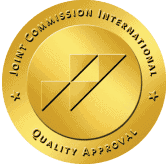Drug Addiction Treatment in San Diego, California
Drug use often develops gradually. What begins as a way to manage pain, pressure, or emotional discomfort can become difficult to control. Over time, substance use may interfere with health, work, relationships, and decision-making. With structured care and consistent support, individuals can regain stability and move forward with greater clarity.
Understanding Drug Addiction
According to the 2023 National Survey on Drug Use and Health from SAMHSA, national data continues to shape how clinicians understand substance use and treatment needs. This information helps guide evidence-based approaches across care settings.
Substance use is frequently connected to underlying mental health conditions such as anxiety, depression, or unresolved trauma. When these concerns remain untreated, maintaining recovery becomes more difficult. For this reason, treatment at Assure Recovery Center addresses substance use and mental health together, helping individuals work through contributing factors rather than focusing only on symptoms.

Drug Addiction in San Diego, California
Effective drug addiction treatment in San Diego, California, must reflect these conditions. Care should be structured, responsive, and informed by local trends and risks. At our recovery Center, treatment is developed to promote stability while helping individuals develop the skills needed to manage daily life without reliance on substances.
833.427.7873
Major Categories of Drugs We Treat
Opioids
Stimulants
Benzodiazepines and Sedatives
Club Drugs and Emerging Substances
Cannabis and Other Substances
Individual Drug Treatment Pages
These pages are intended to provide education, not diagnosis. While substances differ, effective treatment depends on the individual’s history, mental health needs, and level of support required.
Adderrall
Misuse of Adderall can disrupt sleep, mood, and focus. Treatment helps individuals stabilize energy levels and regain balance without reliance on stimulants.
Alcohol
Alcohol use can affect physical health, emotional stability, and relationships. Treatment focuses on stopping use while building structure and long-term support.
Ambien
Regular Ambien use may lead to dependence over time. Treatment supports safe discontinuation and the development of healthier sleep routines.
Barbiturate
Though less commonly prescribed today, barbiturates can be habit-forming. Treatment emphasizes medical oversight and therapeutic support during withdrawal.
Benzodiazepine
Long-term use of medications like Xanax or Valium can lead to dependence. Treatment focuses on gradual tapering, anxiety management, and routine stabilization.
Club Drugs
Substances such as MDMA and ketamine are often used socially but may still lead to problematic patterns. Treatment helps individuals reassess use and restore clarity.
Cocaine
Cocaine use can escalate quickly and affect both mental and physical health. Treatment provides structure to address cravings and rebuild stability.
Crack
Crack use often leads to rapid dependence and disruption. Treatment focuses on stabilization, accountability, and long-term abstinence strategies.
Heroin
Heroin addiction can feel overwhelming without support. Treatment includes medical care, counseling, and structured planning to support recovery.
Inhalants
Inhalant use carries serious neurological and physical risks. Treatment addresses both the immediate health concerns and the underlying reasons for use.
Kratom
Despite being marketed as natural, kratom can lead to dependence. Treatment supports safe discontinuation and improved emotional regulation.
Marijuana
Marijuana use may interfere with motivation or mental health for some individuals. Treatment supports those seeking to reduce or stop use.
Methamphetamine
Meth use can cause significant psychological and physical harm. Treatment focuses on restoring stability and addressing long-term mental health effects.
Opioids
Opioid misuse often begins with prescription medications. Treatment combines medical oversight, therapy, and relapse prevention planning.
OxyContin
OxyContin is a potent opioid that can lead to physical dependence. Treatment supports safe withdrawal and long-term stabilization.
Pain Killers
Prescription painkillers are widely used and easily misused. Treatment focuses on withdrawal management and alternative pain coping strategies.
Prescription Drugs
Misuse of prescribed medications can develop gradually. Treatment helps individuals regain control while addressing the reasons behind use.
Stimulants
Stimulant use can disrupt sleep, mood, and behavior. Treatment focuses on stopping use and establishing healthier routines.
Suboxone
Suboxone is used in opioid treatment, but can still be misused. Treatment helps individuals reassess medication use and recovery goals.
Valium
Dependence on Valium often develops over time. Treatment supports safe tapering and improved daily functioning.
Xanax
Xanax misuse can increase anxiety and dependence. Treatment focuses on gradual reduction and non-medication coping strategies.
Fentanyl
Fentanyl is highly potent and carries a significant overdose risk. Treatment begins with medical stabilization and continues with therapy and relapse prevention.
How We Approach Treatment
Treatment at Assure Recovery Center focuses on long-term stability rather than short-term fixes. Services may include medical oversight, individual therapy, group counseling, relapse prevention planning, and case management, coordinated to support steady progress. Each treatment plan reflects clinical needs, personal goals, and response to care.
As stability improves, treatment shifts to support greater independence while maintaining structure. The clinical team reviews progress regularly and adjusts care to address emerging challenges. The focus remains on building practical skills and maintaining stability beyond the treatment setting.
Why Professional Care Matters
Stopping drug use without medical or clinical support can increase the risk of relapse and health complications. Professional treatment provides structure, monitoring, and guidance during both withdrawal and early recovery. It also allows time to address the behavioral and emotional patterns connected to substance use.
Access to drug addiction treatment in San Diego ensures care informed by local risks, clinical standards, and coordinated support services. Treatment teams can respond quickly to changes in physical or mental health, reducing setbacks that often occur without supervision. This level of care supports continued engagement in recovery while reinforcing long-term stability.

Finding Drug Addiction Treatment in San Diego, California
Finding drug addiction treatment in San Diego, California often involves weighing options and determining what level of care fits your situation. Program structure, clinical support, and continuity of care all influence treatment effectiveness.
If you would like to discuss available services or learn how treatment is structured, contact us to speak with a knowledgeable team member. They will provide clear information and help you determine an appropriate next step.
